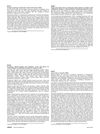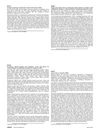Search
forProducts matching "topical foam minoxidil"
Tracking 2 products like 15 Minoxidil Foam and 31 Minoxidil Foam from by companies like Hims and Keeps. View all 2 products »
Sort by
Research
420-450 / 1000+ resultsresearch Efficacy and Safety of a Botanical Topical Serum on Male and Female Androgenetic Alopecia
The serum increased hair density and was well-tolerated, but didn't affect hair thickness or shedding.

research Medical and Surgical Therapies for Alopecias in Black Women
The document concludes that proper diagnosis and a combination of medical, hair-care, and surgical treatments are important for managing alopecia in black women.

research An Update on Etiopathogenesis and Management of Alopecia
Personalized treatment plans combining natural and synthetic approaches are important for managing alopecia effectively.

research Hair Disorders
Different hair disorders have specific treatments and outcomes, with some resolving on their own and others requiring medication or emotional support.

research British Hair and Nail Society
Hair regrowth was seen in 83% of children with alopecia, immune system plays a role in the condition, and various treatments showed effectiveness for hair and nail disorders.

research Promotion of Anagen, Increased Hair Density, and Reduction of Hair Fall in a Clinical Setting Following Identification of FGF5-Inhibiting Compounds via a Novel 2-Stage Process
New compounds were found to help increase hair growth and decrease hair loss.

research Female Pattern Hair Loss: Current Treatment Concepts
Minoxidil 2% and 5% are common treatments for female pattern hair loss, with other options including anti-androgens, oral contraceptives, and hair transplantation.
research Childhood Alopecia Areata: An Overview of Treatment and Recent Patents
Childhood Alopecia Areata causes hair loss and requires varied treatments, with psychological support being crucial.

research Bimatoprost Versus Clobetasol Propionate in Scalp Alopecia Areata: A Prospective Non-Randomized Open-Label Clinical Trial
Bimatoprost and clobetasol are both effective for scalp hair loss, but bimatoprost works faster, has fewer side effects, and grows more colored hair.

research Systematic Review of Mesotherapy for the Treatment of Hair Loss
Mesotherapy might improve hair growth, but more research is needed to confirm its safety and effectiveness.

research Potential Application of PBM in Hair Follicle Organoid Culture for the Treatment of Androgenic Alopecia
Light therapy might help treat hereditary hair loss by improving hair follicle growth in lab cultures.

research Time to Loss of Response for Dupilumab in Ophiasis-Pattern Alopecia Areata
Dupilumab helped a woman with severe hair loss regrow her hair quickly and maintain it for six months after stopping treatment.

research Lasers in Hair Growth and Hair Transplantation
Lasers are less favored for hair transplant surgery but show promise for hair growth in controlled trials.

research Dermoscopic Evaluation of Therapeutic Response to an Intralesional Corticosteroid in the Treatment of Alopecia Areata
Intralesional triamcinolone acetonide is effective for treating patchy hair loss, and dermoscopy helps detect treatment response and side effects early.

research Use of Adapalene in Alopecia Areata: Efficacy and Safety of Mometasone Furoate 0.1% Cream Versus Combination of Mometasone Furoate 0.1% Cream and Adapalene 0.1% Gel in Alopecia Areata
Combining mometasone furoate cream with adapalene gel is safer and more effective for hair regrowth in alopecia areata than using the cream alone.

research Intralesional Injection of Triamcinolone Acetonide, Methotrexate, and Vitamin D in Treatment of Alopecia Areata: A Narrative Review
Methotrexate and vitamin D3 are potentially more effective and safer than triamcinolone for treating localized alopecia areata.

research A Randomized, Double-Blind, Vehicle-Controlled Clinical Study of Hair Regeneration Using Adipose-Derived Stem Cell Constituent Extract in Androgenetic Alopecia
ADSC-CE treatment safely increases hair density and thickness in androgenetic alopecia patients.

research Hair Loss And Its Management In Children
The document concludes that early diagnosis and a comprehensive treatment plan are crucial for managing hair loss in children, with a focus on both medical and psychological support.

research Evaluation of Fractional Carbon Dioxide Laser Alone Versus Its Combination With Betamethasone Valerate in Treatment of Alopecia Areata: A Clinical and Dermoscopic Study
The fractional carbon dioxide laser is a safe and effective treatment for alopecia areata and works better than betamethasone valerate cream alone.

research Hair Care Cosmetics Regulation in Different Countries: A Comparative Study
Different countries have regulations to ensure the safety of hair care products, with some recalling hair straighteners due to high formaldehyde.

research Cutaneous Adverse Effects of Targeted Therapies
Targeted cancer therapies often cause serious skin problems that need careful management.

research Evaluation of Non-Activated and Activated PRP in Hair Loss Treatment: Role of Growth Factor and Cytokine Concentrations Obtained by Different Collection Systems
PRP treatment improves hair growth, and the device used can affect results, with some being more effective.

research Efficacy of Tofacitinib in Treatment of Alopecia Universalis in Two Patients
Tofacitinib was effective in treating hair loss in two patients with alopecia universalis.

research Androgenic Alopecia Is Associated With Less Dietary Soy, Higher Blood Vanadium, and rs1160312 Polymorphism in Taiwanese Communities
Men with more vanadium in their blood and who drink less soy milk are more likely to have hair loss.

research Hair Growth Activity of Three Plants of the Polynesian Cosmetopoeia and Their Regulatory Effect on Dermal Papilla Cells
Extracts from three Polynesian plants were found to promote hair growth by affecting cell growth and gene expression related to hair.

research Dermoscopic Evaluation of Therapeutic Response to Intralesional Triamcinolone Acetonide in the Treatment of Alopecia Areata
Intralesional triamcinolone acetonide effectively treats alopecia areata, as shown by significant improvements in hair regrowth and dermoscopic indicators.

research Prevalence, Clinical Features, and Evaluation of Risk Factors for Onychocryptosis in Adult Diabetic Patients in Outpatient Clinic
Diabetic patients often have ingrown nails due to obesity, high blood pressure, past injuries, bad nail trimming, nail fungus, weak foot pulse, and weak knee reflex.

research Premature Graying of Scalp Hairs Treated with Ferrous Sulfate
Iron supplements may reverse premature hair graying caused by iron deficiency.

research New Treatment Options For Alopecia Areata
Baricitinib is a new, effective treatment for advanced alopecia areata but is costly and has risks.